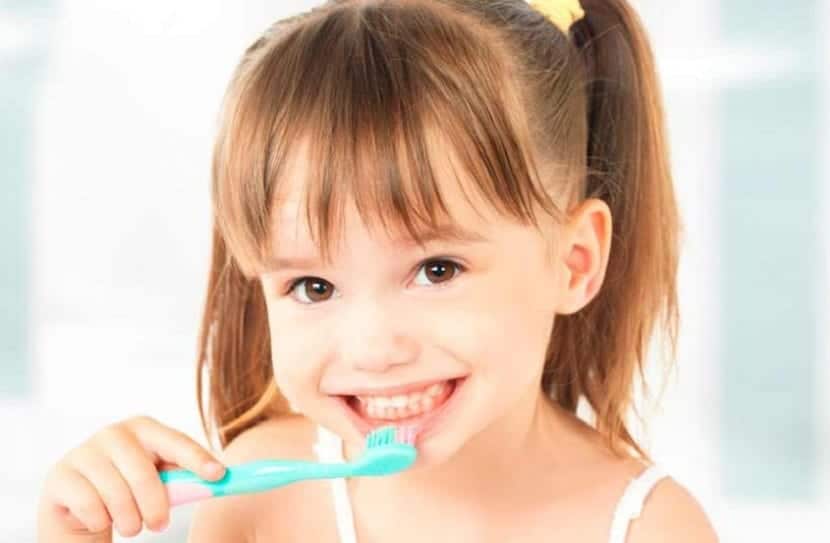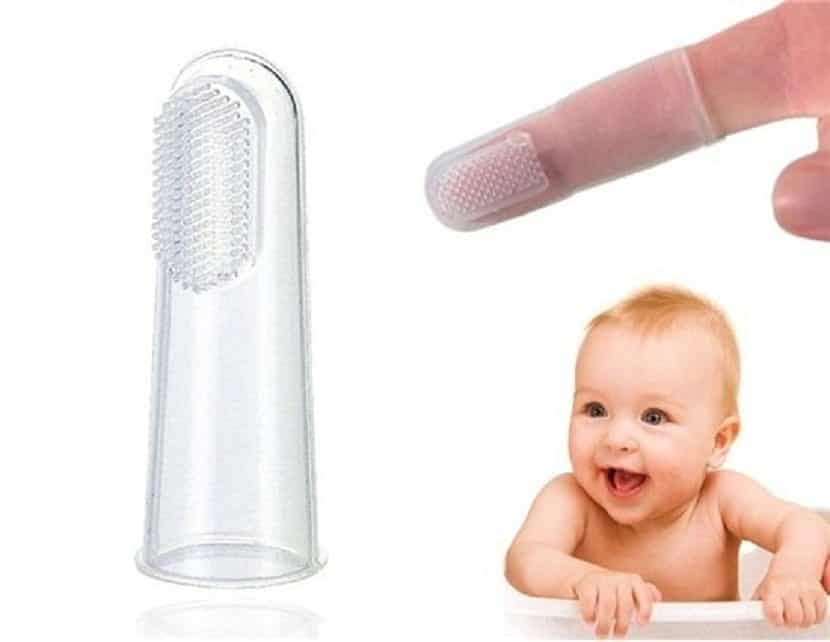
Good daily hygiene habits include brushing your teeth. Although we are talking about very young babies, where it may seem that it is not necessary. Having proper oral hygiene is essential from childhood, to avoid cavities and unnecessary problems later.
A child is best taught by setting an example, therefore, create a tooth brushing routine in which the child is involved. In this way, every day he will know that the time for dental hygiene has come and he will not forget it even if you do not remind him.
It is important to know the differences between toothbrushes children. For each age there is a specific model, and it is essential to take it into account. You also have to be especially careful with the cleaning products you use, such as toothpastes and rinses.
Baby tooth brushing
There are those who think that until teeth appear, oral cleaning is not necessary. This is a mistake, milk and baby food leave residue on your gums to be cleaned. Although it is not a full-blown tooth brushing.
In this case, simply use a gauze soaked in warm water or with an infusion of chamomile. Wrap your little finger with the gauze and rub it well over the child's gum.
You can also find a kind of baby thimble, which is designed to help break the gums when teeth start to erupt. This kind of brush can also be used to clean your baby's gums after each feeding.

Toothbrushes for children 1 to 2 years
It is at this age that we really have to start with a daily oral cleaning routine. Children usually already have teeth at this age. Also, with the introduction of complementary feeding, it is easier for food to leave residue on your teeth.
That is why it is very important to take care of dental hygiene at this age. To do this, you must find a suitable toothbrush. The heads are with rounded shapes and with soft bristles. It is not advisable to use toothpaste, it will be enough to wet the toothbrush a little.

From the age of 3, we introduce toothpaste
Between the ages of 3 and 4, you can start using child-specific toothpaste to clean their teeth. It is very important that the amount you use is minimal, and that you use special products for children of that age.
This is when you can begin to prevent cavities, and this is only achieved with proper oral hygiene. What should be done at least twice a day.

For correct brushing, you must teach your children good technique. It should include cleaning the tongue, and last at least two minutes so that all teeth are clean.
Electric toothbrush
You may wonder if it is better for your child to use an electric toothbrush, since it is more comfortable, in principle. You really should know that the best cleaning does not depend on the brush, if not of the technique.
Therefore, if your child does not learn to brush his teeth correctly, with a manual toothbrush, he will not learn with an electric toothbrush either, although this makes your job easier.
If you finally decide on an electric toothbrush, be sure to that is rechargeable and not battery-powered. In addition, it must always be on its charger and connected to the light, so that it always has the same speed.
If the brush is battery-powered, as they wear out, the speed will decrease, so its effectiveness will also be reduced. It could not comply with a correct brushing and favor the appearance of cavities in your children.
Create routines as a family
If you establish a routine as a family, in the morning and at night, what will start as a game, will become a habit of healthy living. Your children will get used to daily brushing and with this you will avoid very expensive dental treatments, traumatic for children, and completely unnecessary.